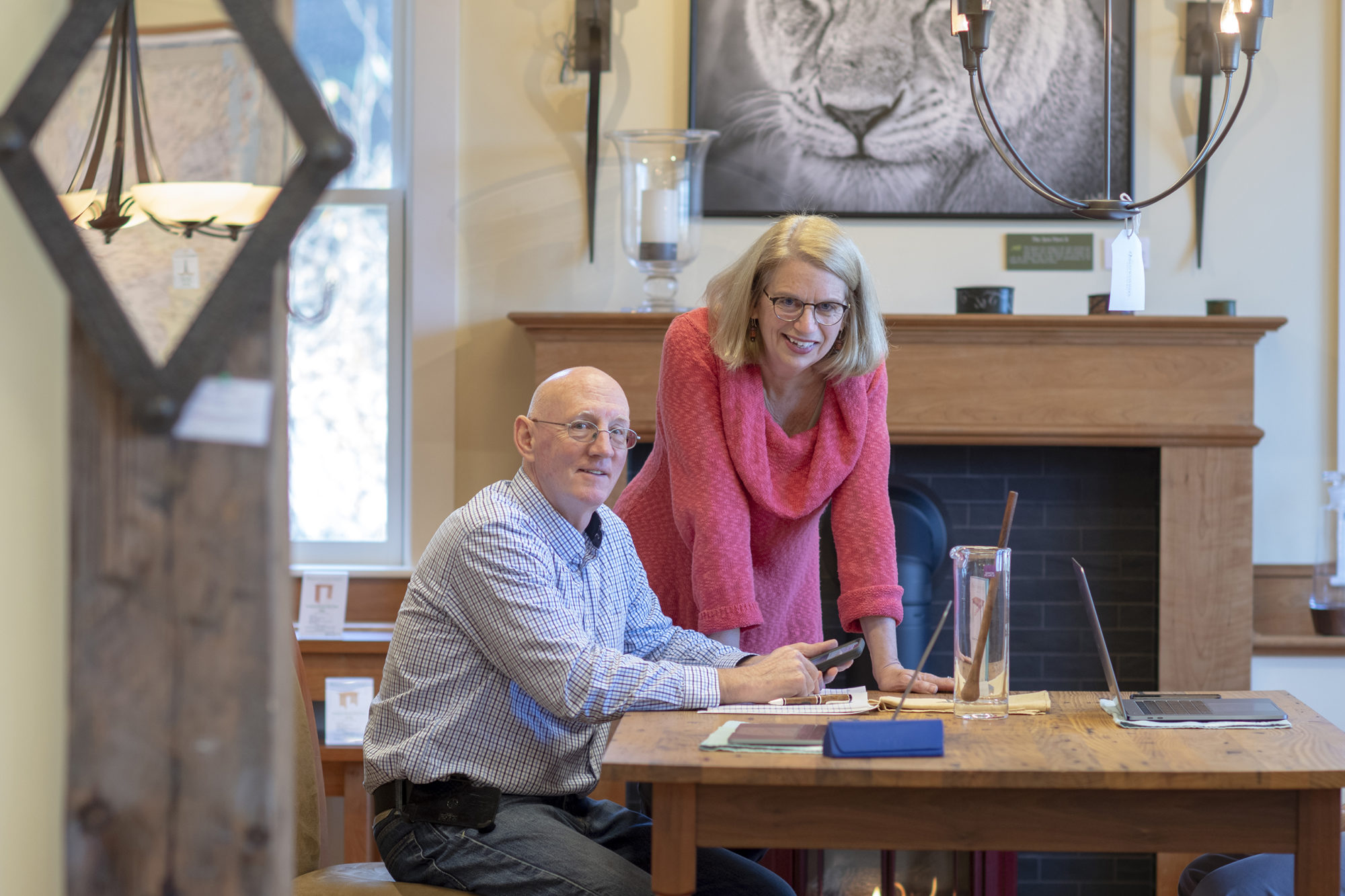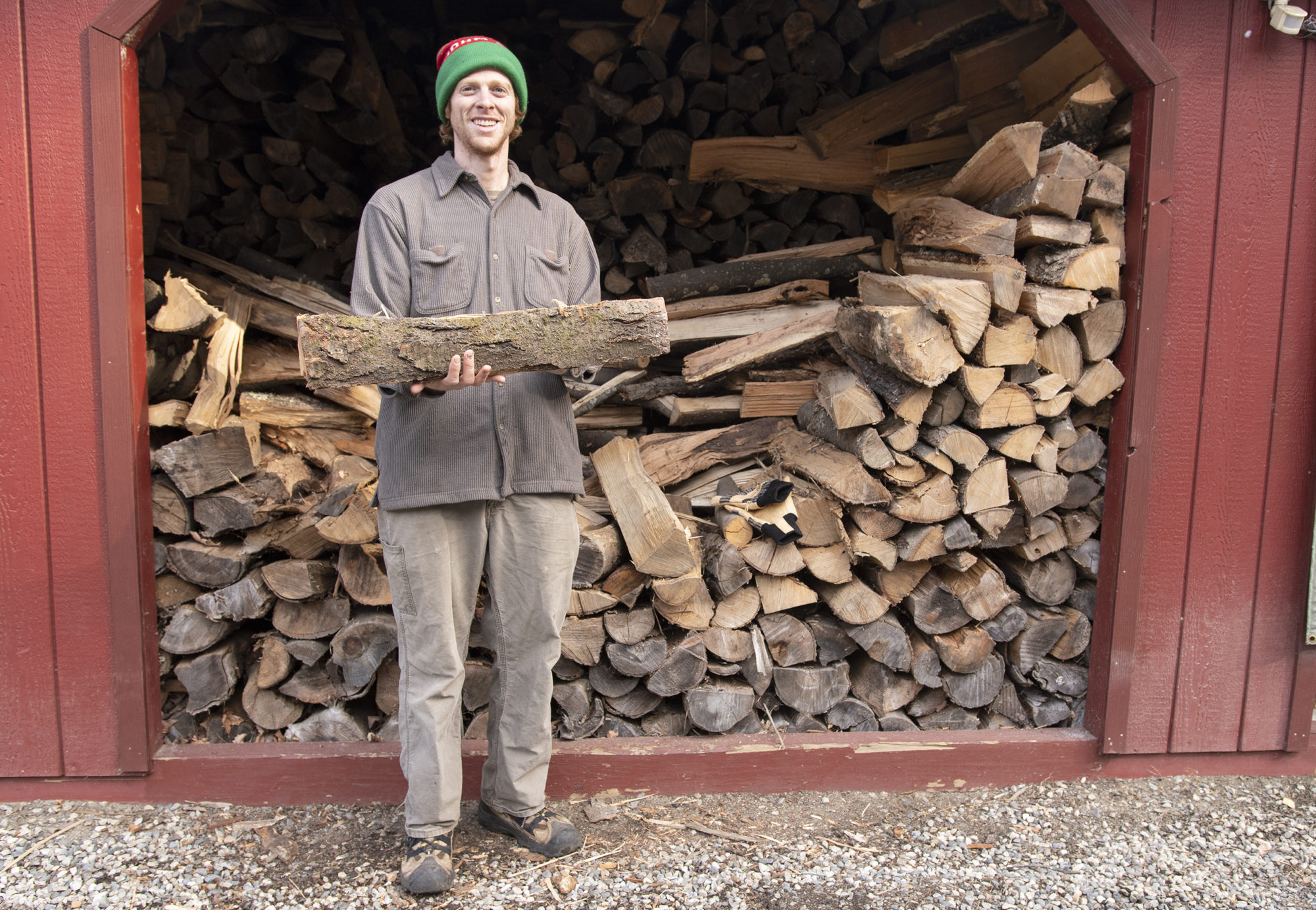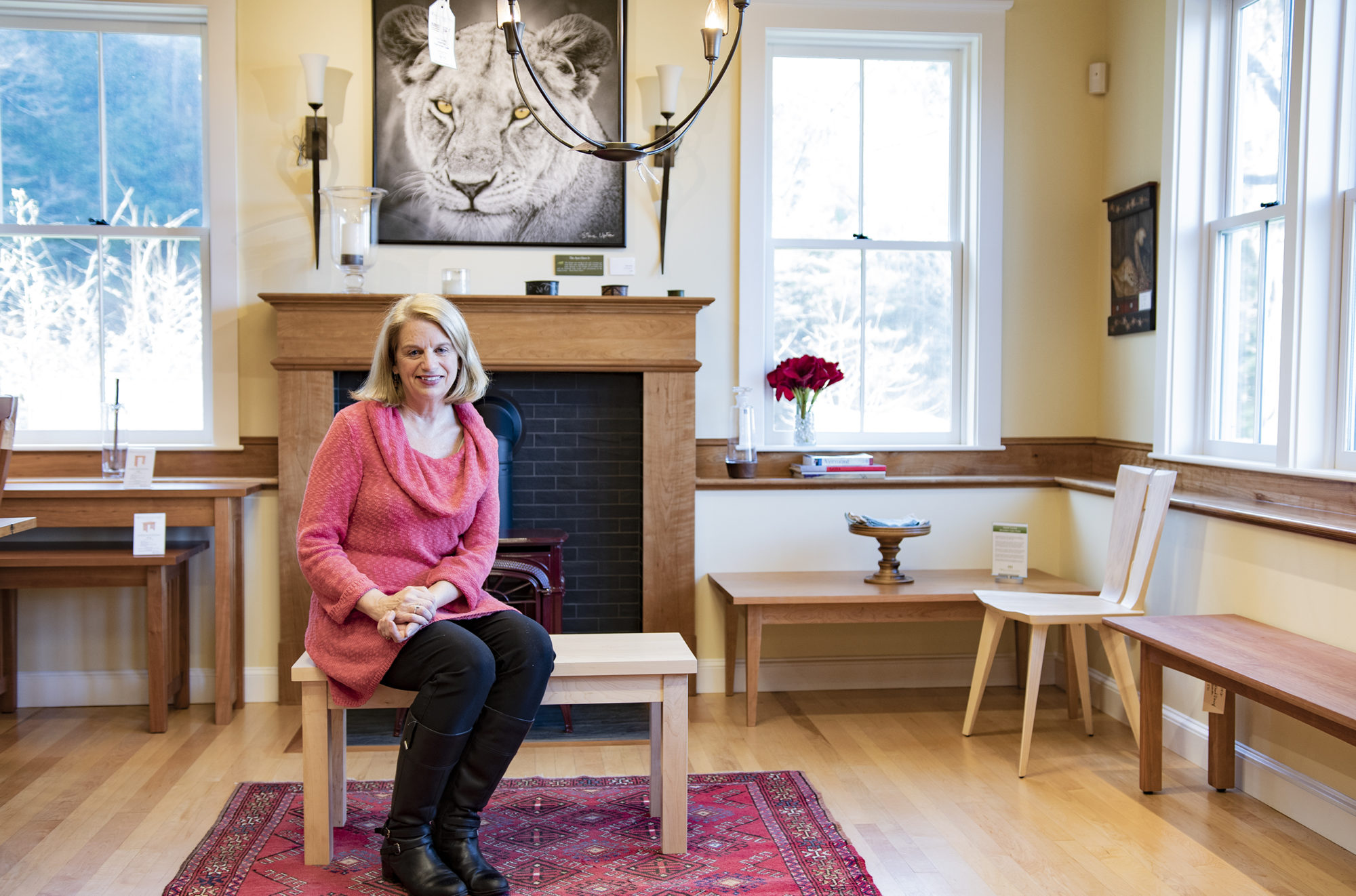One Rocking Chair at a Time: Vermont Woods Studios Makes a Case for Buying Local
November 15, 2018

By Christine McGowan, Forest Program Director, Vermont Sustainable Jobs Fund
“Buy local” is a common refrain around Vermont, and many of us feel good about supporting small, independently-owned businesses, farms and restaurants around the state. For Peggy Farabaugh, owner of Vermont Woods Studios in Vernon, the idea has roots that are much deeper and farther reaching. “We started this business 13 years ago because Vermont woodworkers were making some of the finest furniture in the country, but few people outside of New England knew about them,” said Farabaugh. “We thought that if we could introduce consumers to Vermont’s incredibly talented furniture-makers, we could convince them to buy responsibly-made furniture that supported forest health, and ultimately the health of our planet.”
Sound lofty? Farabaugh makes the connection between buying locally-made furniture and global forest health without missing a beat. She explains that many larger, industrial-scale furniture makers buy wood that is illegally or, at best, irresponsibly harvested from rainforests like the Amazon in South America. Timber is shipped to China where it’s inexpensively made into furniture using cheap labor, and then sold to U.S. consumers. “You’re paying to ship wood around the world,” said Farabaugh, “not for craftsmanship or quality.”
Vermont Woods Studios
Farabaugh and her husband, Ken, believed they could create a market for Vermont-made furniture to help support the local woodworking community. Their first move was to purchase the old Pine Top ski area in Vernon and convert the former ski lodge into a showroom for Vermont-made furniture. Well positioned just a few hours from Boston, New York and other major metro areas in the Northeast, the Farabaughs believed customers could be drawn north to buy locally-made furniture. Today, Vermont Woods Studios features furniture made by Maple Corner Woodworks, Vermont Furniture Designs, Copeland Furniture, and Lyndon Furniture as well as products made from Vermont partners such as Hubbardton Forge and Simon Pearce. They deliver an average of 200 pieces of furniture per month. “The furniture makers we work with are using both traditional methods and cutting-edge technology to make pieces that will last a lifetime,” said Farabaugh. “We have customers from as far away as California who come to us because they want to know where and how their furniture is made.”
All of the furniture at Vermont Woods Studios is made in Vermont from wood that is sustainably harvested in the Northeast, and the Farabaughs are making a concerted effort to help increase consumer demand for wood species native to Vermont. “Furniture is actually a lot like fashion,” said Farabaugh, “trends come and go. One year everyone wants cherry, the next year walnut. We try to feature Vermont woods, such as maple, in the showroom and online to encourage consumers to think about other options.” Anecdotally, Farabaugh sees an uptick in sales of local wood species, pointing to a maple bedroom set she sold that day. “If we can connect people to the story behind the furniture, we might be able to convince them to make a choice based on something other than color preference.”
Vermont forests have the capacity for increased harvesting to accommodate furniture production. According to the Vermont Department of Forests, Parks and Recreation, the 2017 growth to removal ratio was 2:1, meaning that we are growing twice as much wood as is annually harvested or dies. Farabaugh, who employs a professional forester, notes that “you have to weed the forest garden” to keep it productive and healthy. The more demand for furniture made from local wood, she reasons, the more incentive for Vermont’s forests to be actively managed and, therefore, preserved as forests.

Jake Checani, land steward and facilities manager for Vermont Woods Studios, stands in front of a shed filled with 20 cords of oak, ash, birch and beech firewood that was harvested from the woods behind the company’s office in Vernon. Photo credit: Erica Houskeeper
Global Reforestation
With global rainforests disappearing at the alarming rate of 1.5 acres every second, the Farabaughs were compelled to take their dedication to sustainable forestry practices one step further, committing to plant trees in the very same rainforests being clear cut by their competitors. To date, they have planted more than 57,000 trees in the Amazon and other rainforests through non-profit organizations such as Plant A Billion Trees and Forests for Monarchs. “We don’t just sprinkle seeds,” said Farabaugh, “we check on our trees after three and seven years, at which point they are well on their way to maturity and significantly contributing to carbon sequestration and animal habitat.” She notes that their current partner, Forests for Monarchs, has additional synergy, as they are planting trees in the oyamel forests of Mexico where many of Vermont’s monarch butterflies go for the winter.

Peggy Farabaugh, seen here in her showroom, sells furniture made by Maple Corner Woodworks, Vermont Furniture Designs, Copeland Furniture, and Lyndon Furniture as well as products made from Vermont partners such as Hubbardton Forge and Simon Pearce. Photo credit: Erica Houskeeper
“Consumers have a choice in how they spend their dollar,” she said, “and we want to give them a clear alternative to mass-produced, low-quality furniture. It’s like food. Anyone who feels frustrated by environmental problems can start by understanding where the things they buy come from.”
Vermont Forest Industry Network
Vermont’s forest products industry generates an annual economic output of $1.5 billion and supports 10,000 jobs in forestry, logging, processing, specialty woodworking, construction and wood heating. The new Vermont Forest Industry Network creates the space for industry professionals from across the entire supply chain and trade association partners throughout the state to build stronger relationships and collaboration throughout the industry, including helping to promote new and existing markets for Vermont wood products, from high quality furniture to construction material to thermal biomass products such as chips and pellets. For more information please visit www.vsjf.org.
Lead Photo: Peggy Farabaugh and her husband, Ken, believed they could create a market for Vermont-made furniture to help support the local woodworking community. Photo credit: Erica Houskeeper




